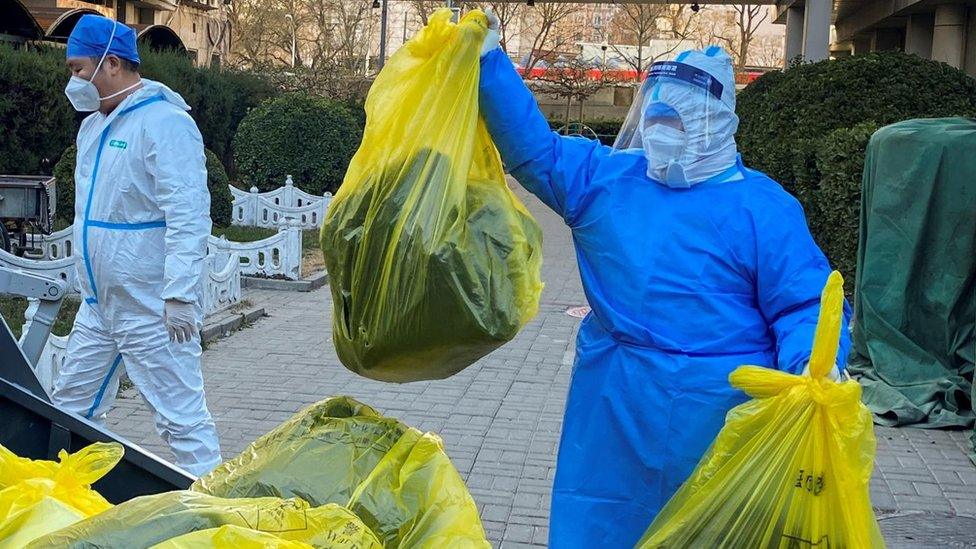Pitfalls lie ahead as China charts exit from zero-Covid
- Published
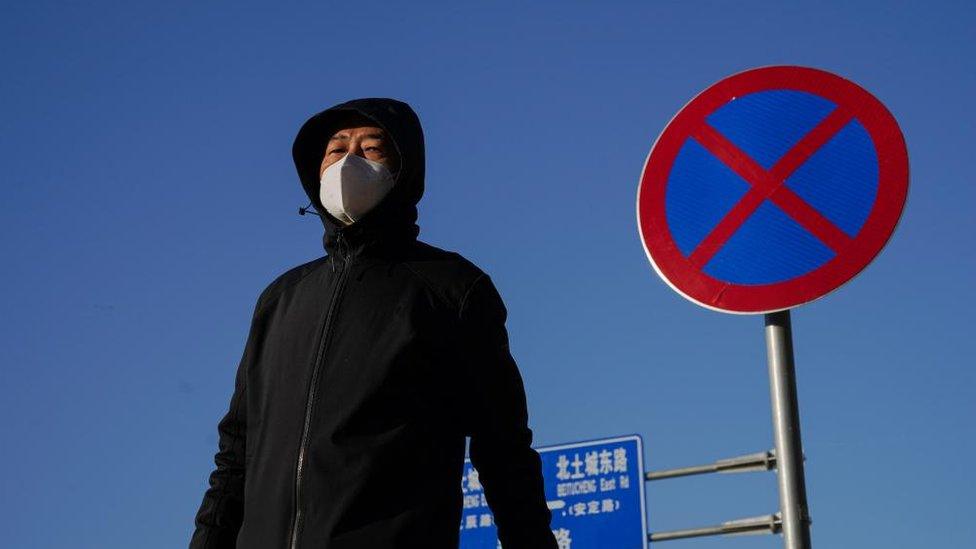
China faces a bumpy road ahead
After unprecedented mass protests against zero-Covid, Chinese authorities have made their most decisive move yet to exit the punishing policy.
On Wednesday, officials announced the end of forced centralised quarantine, allowing people with mild Covid to isolate at home, as well as limits to lockdowns, fewer checks of Covid test results, and freer travel around the country. It came after various cities began easing local restrictions.
Even as China charts a course out of zero-Covid, it must navigate several pitfalls that lie ahead.
The main challenge is ensuring the inevitable uptick in infections does not lead to mass deaths.
"China's big risk now is removing Covid restrictions without having a broadly vaccinated population," said James Crabtree, executive director of the International Institute for Strategic Studies in Singapore.
"China will hope to reopen in a targeted way, protecting those who are yet to be vaccinated, but so far at least other countries have not been able to do this, and have generally seen that re-opening leads to a wave of cases."
This is especially worrying for China given its low Covid immunity among the elderly, and the fact that it continues to rely on less effective domestic vaccines.
When other places like South Korea and Singapore opened up, they had well-vaccinated populations who received foreign jabs such as Pfizer, Moderna and Astrazeneca, but still could not prevent a spike in infections.
Current figures from Chinese authorities show only 69% of those aged above 60 and 40% of those over 80 have had a booster shot.
Accelerating their vaccinations will remain a challenge given the continued distrust in vaccines among this group.
"Many old people have underlying diseases. They reckon it won't be safe to get vaccinated. But in fact, it is safe," the head of China's Covid expert panel, Prof Liang Wannian, told the BBC previously.
On Wednesday, Chinese authorities laid out plans such as temporary and mobile vaccination clinics, and also urged local authorities to use "incentives to mobilise the enthusiasm of the elderly to get vaccinated".
They are reportedly planning to boost the immunity of most elderly by the end of January, before Chinese New Year when huge numbers of people will move around the country.
In the meantime, with its elderly population still vulnerable, China risks seeing a wave of severe Covid cases, which would in turn result in many deaths if hospitals get overwhelmed. This was exactly what happened in Hong Kong when the Omicron wave hit the city earlier this year.
It may be why mainland China has now shifted to home quarantine for mild and asymptomatic cases. Earlier this week, the Global Times state media outlet singled out a similar move by Singapore as something worth emulating, as it would free up resources and hospital beds for more severe cases.
But this goal may be difficult to achieve.
Singapore has a strong healthcare system with various options, and could successfully shift to home quarantine because people with mild Covid could seek treatment from the country's large network of community clinics and telemedicine providers.
Meanwhile China still has patchy healthcare infrastructure which suffered from a a slowdown in investment during the pandemic, external. In many places, people continue to rely on hospitals for even basic treatment, pointed out Donald Low, a public policy expert with the Hong Kong University of Science and Technology.
"In China, there is relatively scarce community-based care, compared to hospital-based care. It's hard to follow the Singapore model on that… China had two years to build that infrastructure, but they didn't," said Prof Low.
The timing of the relaxation of measures also presents a challenge.
Dr Siddharth Sridhar, a clinical virologist at the University of Hong Kong, said it is especially worrying that China is opening up during winter, when the virus is more likely to spread more rapidly.
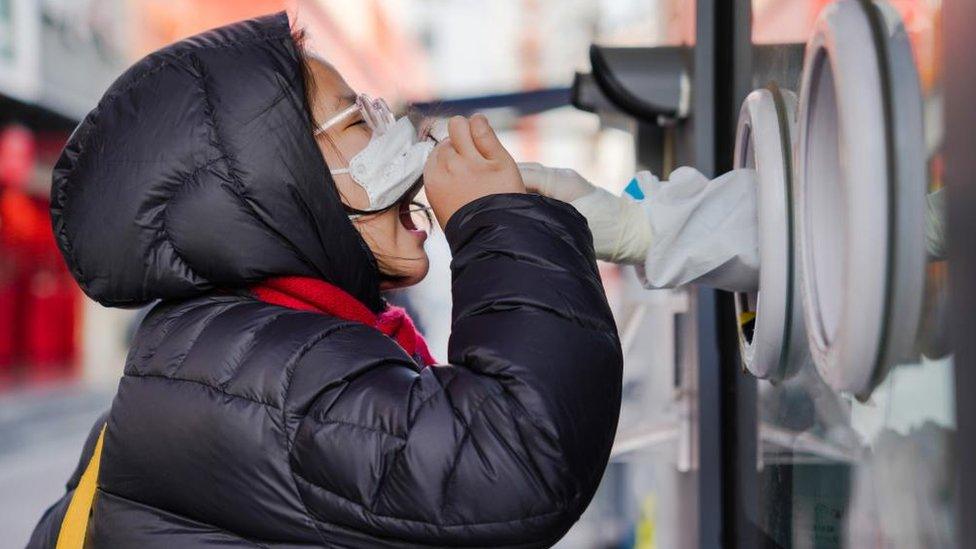
The easing comes during winter in China
So what could China do?
It will have to go slow in its reopening, or else it will see an "exponentially worse" situation than what happened in Hong Kong earlier this year, warned Dr Sridhar.
"Hong Kong is just 7.5 million people. Decent public healthcare infrastructure. Deep pockets. It doesn't apply to many places in China."
A recent Bloomberg analysis, external based on US and Europe data in the first six months of the Omicron outbreak calculated that a similar full reopening in China would lead to 5.8 million people admitted to intensive care. This would completely overwhelm China's healthcare system that has less than four ICU beds per 100,000 people.
The Chinese government could redirect resources from containment to setting up a door-to-door vaccination campaign, boost critical care infrastructure such as ensuring oxygen supplies, and train as many people as possible in basic critical care, added Dr Sridhar.
Experts say it also needs to vastly improve its public healthcare messaging to allay public fears of the virus, and give clear instructions on what to do if people test positive for Covid.
During Hong Kong's Omicron wave, poor and unclear government directives led to hospitals flooded with cases as many people panicked, even though they were allowed to isolate at home.
Prof Low said Chinese authorities could lay out a roadmap to live with Covid, as Singapore did. It also has to be honest with its people about Covid inevitably becoming endemic and something they have to live with, he added.
"People have a zero-risk bias, and the government has to counteract that by saying we always will have the Covid risk."
At the same time, caution will be needed, said Dr Sridhar. "A big mistake right now would be to say Omicron is harmless and we are okay, that's what we are doing, now it's time to open up.
"That's just going to be inviting disaster on yourself."
Related topics
- Published7 December 2022
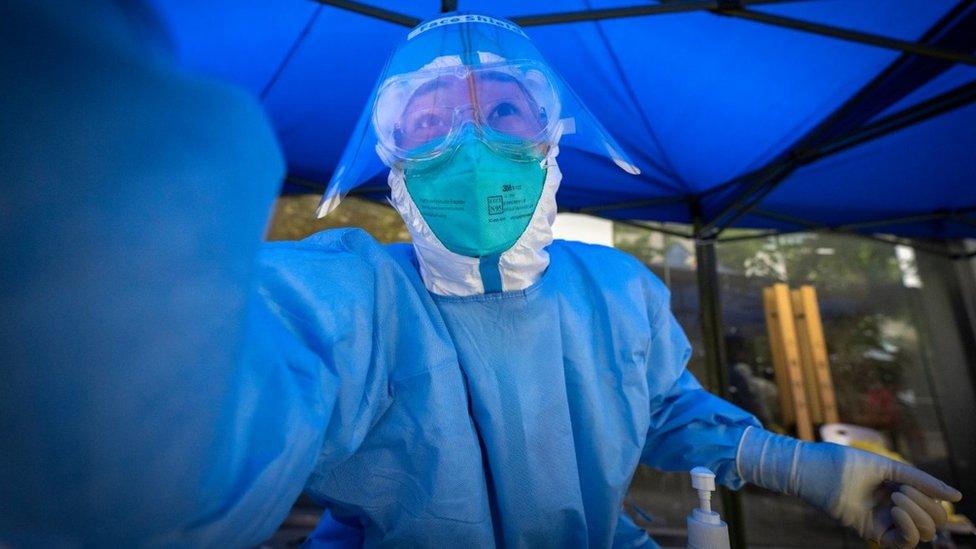
- Published5 January 2023
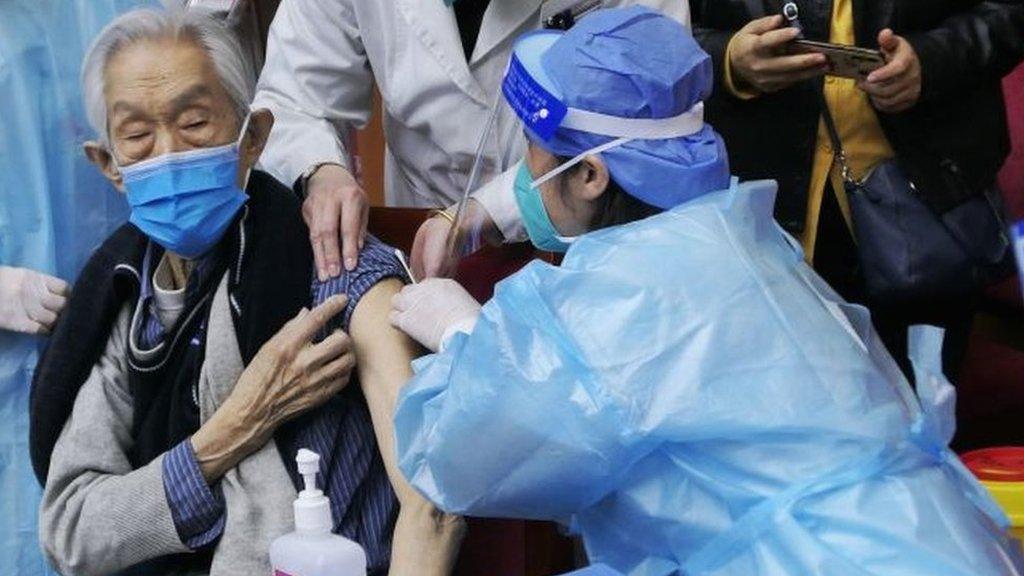
- Published5 December 2022
